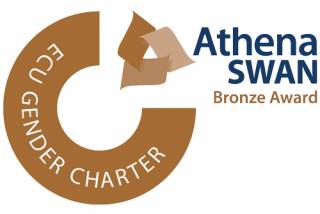The UCAS form
The first stage of the admissions process is the completion and submission of your UCAS form. Whatever you decide to write about yourself in your personal statement, make sure that you have checked it through carefully for spelling mistakes and errors in punctuation and grammar! We will get in touch when your UCAS form arrives to let you know that we have received it. If you have included an email address on your UCAS form, then we will acknowledge receipt of your application with an email to that address, so do keep checking it. UCAS forms give us a lot of useful information, especially with regard to your actual or predicted performance at A-level and GCSE (or equivalent). We take many factors into account when assessing your UCAS form, but an enthusiastic personal statement, a good reference, good predictions and a strong set of exam results certainly won't do you any harm.
The next step
Having looked carefully at the UCAS forms, we will send out a supplementary questionnaire to those people whose applications we want to consider further. The UCAS form provides us with lots of helpful information but we feel that, in order to make the right decision, it is useful for us to find out a little bit more about you. The questionnaire is not an exam or a test, but simply a way for us to increase the amount of information we have available to us in assessing your application. It will include questions designed to give you an opportunity to display your enthusiasm for and interest in the subject that you have applied to study. These will be sent out in two batches, one at the end of December and one at the end of January. You will have around 3 weeks to complete and return the questionnaire. We will then make offers on the basis of our evaluation of your responses to the questionnaire together with all the elements of the UCAS form. We aim to have informed every applicant of our decision by the end of March.
In some exceptional cases, we may ask you to attend an interview. This will only be required if your case is unusual, for example, if you are returning to education after several years and do not have the standard range of A-levels. If you are asked to attend an interview, don't worry! It is, as with the questionnaire, a way for us to ensure that we have as much information as possible to help us evaluate your application. Interviews will be conducted by the Admissions Tutor and another member of the academic staff in the department and will take approximately twenty minutes. Like the questionnaire, they are designed to give you a chance to demonstrate your enthusiasm for and interest in Classics.
What are we looking for?
At every stage of the admissions process, we are assessing your general (and, in some cases, linguistic) aptitude for the course for which you have applied. Whilst there is no magic formula for a successful application, we would certainly hope to see evidence of the following: your intelligence and ability to communicate ideas clearly; your enthusiasm for, engagement with, and knowledge of the classical world; an interest in the subject that goes beyond the syllabus; and an enthusiasm for and knowledge of the UCL programme.
Open days
We will be holding a departmental open day for all students holding a conditional offer in late March. The open day is a chance for you to find out more about UCL: there are talks from current students and staff, and you will have the opportunity to chat to them informally, usually over lunch. There are also tours of the college and the library and sample lectures given by members of staff.
 Close
Close



